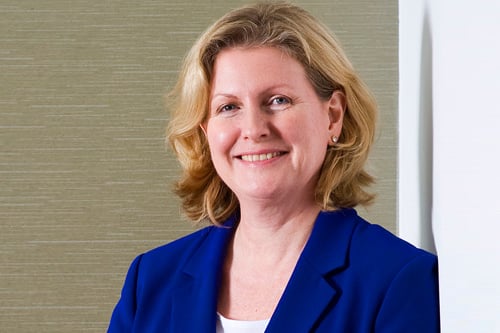

Today marks Insurance Business UK’s first-ever virtual Women in Insurance Summit where senior leaders across the sector come together to discuss the vital contributions women make to the insurance industry, and how women can be supported and, in turn, support each other. The need to encourage the resilience of women is something which many associations and businesses within the financial services industry acknowledge, and the COVID-19 crisis has only exacerbated this need.
A recent report from the ‘Insuring Women’s Futures’ (IWF) initiative has shone a spotlight on the urgent action required to make sure women do not take a financial step backwards due to the COVID pandemic. In discussion with Insurance Business, partner at PwC and co-founder of IWF, Jane Portas, highlighted how the report’s recommendations build on the measures suggested as necessary to improve female financial resilience at the launch of the IWF’s Manifesto Proposals last November.
“A big thing this report does is show the relationship between health, work and financial wellbeing and shows that all sorts of different aspects of life, and now with a COVID lens to that, have impacts on women’s wellbeing,” she said. “And whether they start with a health issue or a work-life issue, they have quite significant financial consequences.”
Read more: Improving the financial future of women
Co-founder of IWF and chief executive of the Chartered Insurance Institute (CII), Sian Fisher (pictured) contextualised the report, noting that, following the work which went into the original manifesto which identified key “moments that matter” in the financial lifecycle of women and the perils and pitfalls that they face, it was a matter of mere weeks before the pandemic erupted. Fisher and Portas swiftly identified how important it was that the extraordinary and unprecedented nature of the crisis did not overshadow the significant work that still needs to be done in this area.
“We [wanted] to make sure that policymakers and regulators didn’t have the ability to shove everything we originally did to one side and say, ‘oh well, COVID has just meant that’s just not applicable anymore’… And it [can seem] so convenient that something like this allows some people to put all these other things to one side,” Fisher said.
“One really critical thing was for us to be rigorous about going back over those perils and pitfalls and moments that matters. And that just pulled up the fact that COVID has absolutely, 100% reinforced everything that came out in the original report and, unfortunately, if you put that as an umbrella over the top of all this, COVID has actually just exacerbated the situation.”
On the flipside of any crisis is an opportunity, Fisher said, and thanks to the initial research and recommendations put forward by IWF there is already a widespread understanding of the many issues facing the financial resilience of women. If this crisis can do anything, it can focus everyone’s mind on coming out of this fairer. When you consider the COVID priorities identified in this latest report, they relate strongly back to those original recommendations and establish how the pandemic can be used to benefit everyone involved.
“Rather than ‘build back better’, we might say we are looking to ‘build back fairer’,” she said, “And that leads on another point, from a practical perspective. We are a bit concerned about the conversations about government action in relation to skills and the funding of the National Skills Fund. That is a fantastic thing but [it is essential] to look to the facts about who has been losing their jobs, what roles are the most exposed and whose financial position has been the most impacted?
“If these things are not focused on when these government and policy initiatives come out then the targeting is going to be off. And what this shows is that there are areas where if you did focus those activities, they would have the biggest impact for everyone, but for women in particular.”
When policies are being made, it is always essential to consider the people involved, Portas said, and to put them at the heart of such processes. Understanding people’s life circumstances and embedding their life journeys into policymaking is paramount. This ensures that if an intervention is made at one point, then it will not only have the maximum impact possible but will also prevent that intervention from having any unintended consequences somewhere else across the life journey.
“And that’s why those six moments that matter are so beautiful, because, what they do is they allow you to choreograph your interventions, so that you can maximise your impacts, not just for women, but in a way that actually benefits everybody,” she said. “One of the key recommendations coming out of this and all of [IWF’s] reports is, firstly, about the collection and use of disaggregated data; both gender, life circumstances, and intersectional. And then contemplating life journeys as part of public policymaking.”
